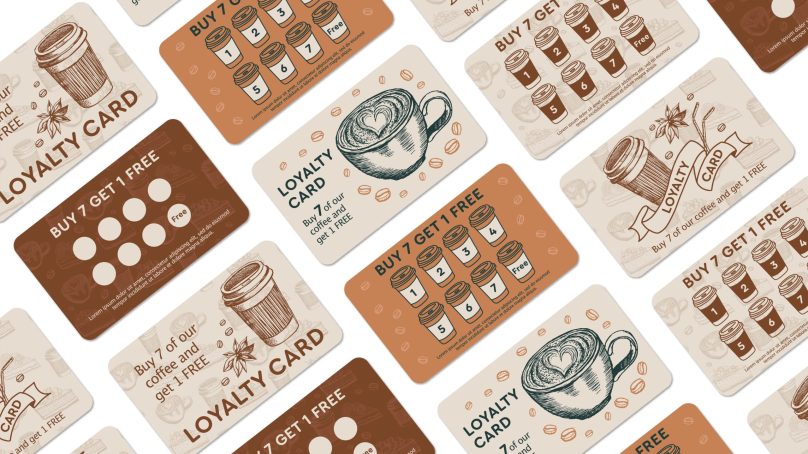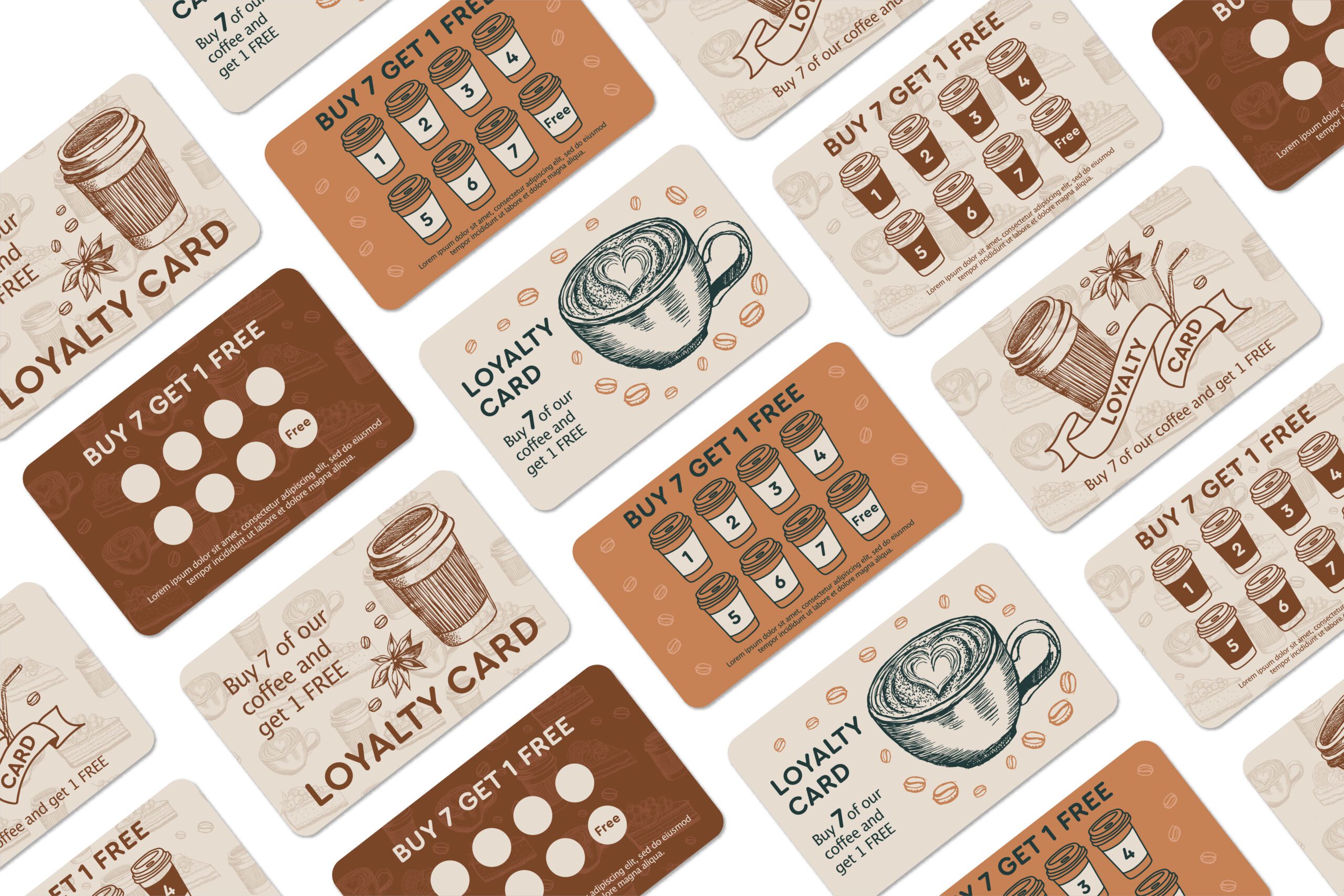

The importance of restaurants loyalty programs
As the restaurant market flourishes, loyalty programs have become essential for building a dedicated customer base and driving revenue. These programs reward guests for returning and staying engaged with your brand, ultimately generating increased sales and brand loyalty. The evolution from basic analog rewards to sophisticated tech-driven systems mirrors changing consumer expectations in this region.
Historically, loyalty programs were simple, but today they use technology and data analytics to deliver personalized and engaging experiences. Furthermore, in the restaurant industry, common loyalty program features now include point-based systems, discounts, free items, and exclusive offers.
For instance, many popular UAE restaurants and cafes, like Açaí Spot’s loyalty program, enhance the dining experience by fostering community. The program rewards repeat visits with a straightforward 10 percent cash back on all purchases, encouraging regular patronage and making customers feel valued.
Additionally, loyalty members receive early access to new menu items, creating excitement around fresh offerings and boosting customer engagement. Moreover, to promote the program, the brand leverages in-store promotions, social media and staff education, ensuring its benefits are highlighted.
Recent research indicates that the loyalty market in Saudi Arabia has experienced a robust compound annual growth rate (CAGR) of 11.6 percent from 2019 to 2023. Looking ahead, the market is poised for continued expansion, with a projected CAGR of 8.5 percent from 2024 to 2028. This growth is expected to elevate the market’s value from approximately USD 1.04 billion in 2023 to USD 1.59 billion by 2028.
Key Statistics on restaurants loyalty programs
Adoption rates
The popularity of loyalty programs has surged in the region over the past decade, especially post-pandemic, as restaurants adapt. Consequently, restaurants are seeking ways to re-engage with their customer base and drive sales effectively through these programs. Moreover, recent trends show that restaurants in both countries are increasingly recognizing the advantages of these programs. This shift is part of a broader trend towards customer-centricity, where businesses prioritize long-term relationships and repeat business.
Customer participation
Participation rates in loyalty programs are high across demographics in the region, with millennials showing especially strong engagement. Furthermore, in 2021 alone, 54.7 percent of millennials were active in restaurant loyalty programs, making them the largest user group. In addition, Millennials, aged 24-39, are known for being digitally savvy and seeking personalized experiences. They see immense value in tailored rewards and exclusive offers, which enhance their loyalty program participation. According to YouGov data, 27 percent of UAE consumers are loyalty program enthusiasts.
Impact on revenue
Data shows that with each monetary transaction, users maximize their point earnings, leading to increased program engagement. Additionally, loyalty programs have a measurable impact on restaurant revenue, demonstrating their effectiveness in boosting sales. On average, loyalty program members generate 12-18 percent more incremental revenue growth annually than non-members, according to studies. These stats prove that loyalty programs not only attract and retain key customer segments but also increase spending on menu items. Furthermore, the financial benefits highlight the importance of effective loyalty programs to drive growth and stay competitive in the restaurant industry. However, emerging trends are shaping restaurant loyalty programs today, influencing their evolution.
Trends shaping restaurant loyalty programs
Personalization and customization
Personalization is a game-changer in the restaurant industry, offering a powerful tool to enhance customer engagement and satisfaction. Using data analytics, restaurants in the UAE can track customer behavior and preferences to offer highly targeted rewards. For example, Açaí Spot’s loyalty program leverages customer data to tailor rewards and promotions effectively. Personalized reward programs and offers are crucial for attracting and retaining customers in a competitive market. This curated approach not only enhances the customer experience but also builds a stronger emotional connection with the brand, ultimately encouraging repeat business and fostering long-term loyalty.
Technology integration
Technology integration has revolutionized customer engagement with loyalty programs, offering more accessible and personalized experiences for consumers. The rise of mobile apps and digital platforms has simplified access and interaction, empowering customers to effortlessly track rewards and receive tailored offers. These platforms facilitate a more convenient, streamlined connection with brands, enhancing customer satisfaction. Restaurants in both countries are increasingly embracing personalized, technology-driven solutions while exploring cashback options to deepen customer engagement and retention. The introduction of innovative programs by leading players underscores a competitive landscape, dedicated to delivering exceptional value to consumers across markets. However, a seamless experience across multiple channels is key to modern loyalty programs. Restaurants are now focusing on integrating online, mobile, and in-store interactions to create a cohesive, seamless customer experience. For example, QR code scanning at checkout to accumulate points enhances customer interaction and satisfaction significantly. This integration is crucial for restaurants in the UAE and KSA, where tech-savvy consumers increasingly expect such digital experiences.
Future directions of loyalty programs
As loyalty programs evolve, two main trends are shaping their future and significantly impacting customer engagement strategies. On one hand, AI and machine learning will transform loyalty programs by delivering highly personalized experiences tailored to individual preferences. On the other hand, sustainability and social responsibility are becoming increasingly important as consumers prioritize ethical practices more and more.
AI and machine learning
These technologies allow restaurants to analyze customer data more effectively, predicting preferences and enabling more precise communication with guests. Additionally, AI-driven micro-segmentation enhances targeting and effectiveness beyond generic offers, delivering tailored solutions that resonate with individual consumers. Consequently, this strategy helps draw in new customers and increases the dollars spent on offerings.
Sustainability and social responsibility
Establishments should aim to match customer values, offering examples such as discounts for using reusable containers or eco-conscious packaging. Additionally, these businesses align their loyalty programs with broader corporate social responsibility goals, reflecting their commitment to sustainability. The future of restaurant loyalty programs combines AI-driven personalization with a focus on sustainability and social responsibility. Together, these trends set a new standard for how loyalty programs can drive customer satisfaction and long-term business success. As restaurants use technology to become more precise with their menu items and loyalty programs, they improve customer experience and build deeper connections with their audience. By aligning loyalty programs with ethical practices and broader social goals, restaurants resonate more with the values of today’s consumers.
The increasing implementation of loyalty programs highlights their necessity for driving customer retention and revenue growth in today’s market. As these programs become more tech-driven and socially responsible, restaurants embracing innovation and reflecting their customers’ values will stand out in a competitive market. Moreover, these programs increase customer satisfaction.

Naji Haddad,
General manager of Deliverect MENA
deliverect.com
@deliverect_official
















